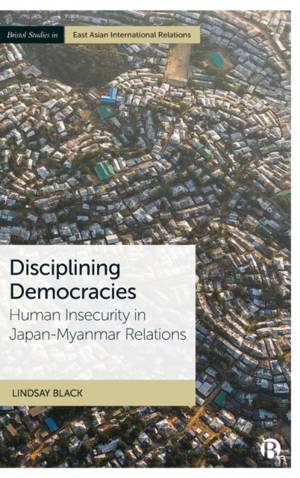
- Retrait gratuit dans votre magasin Club
- 7.000.000 titres dans notre catalogue
- Payer en toute sécurité
- Toujours un magasin près de chez vous
- Retrait gratuit dans votre magasin Club
- 7.000.0000 titres dans notre catalogue
- Payer en toute sécurité
- Toujours un magasin près de chez vous
Description
This book examines Japan's relationship with Myanmar from the passage of its constitution in May 2008 to the February 2021 coup d'état that finished its transition to a 'disciplined democracy.'
It explores the nexus between security and political economy in the context of changing regional dynamics characterized by 'Great Power' competition and cooperation. Focusing on the impact of Japan's relations with Myanmar on people in Myanmar and beyond, the author argues that the Japanese government and businesses side lined 'universal values' for profit at the expense of human security.
This text develops a unique Area Studies approach that critiques how Japan's foreign policy elites perceive Japan's role in the liberal international order.
Spécifications
Parties prenantes
- Auteur(s) :
- Editeur:
Contenu
- Nombre de pages :
- 246
- Langue:
- Anglais
- Collection :
Caractéristiques
- EAN:
- 9781529232844
- Date de parution :
- 22-08-23
- Format:
- Livre relié
- Format numérique:
- Ongenaaid / garenloos gebonden
- Dimensions :
- 156 mm x 234 mm
- Poids :
- 521 g

Les avis
Nous publions uniquement les avis qui respectent les conditions requises. Consultez nos conditions pour les avis.






